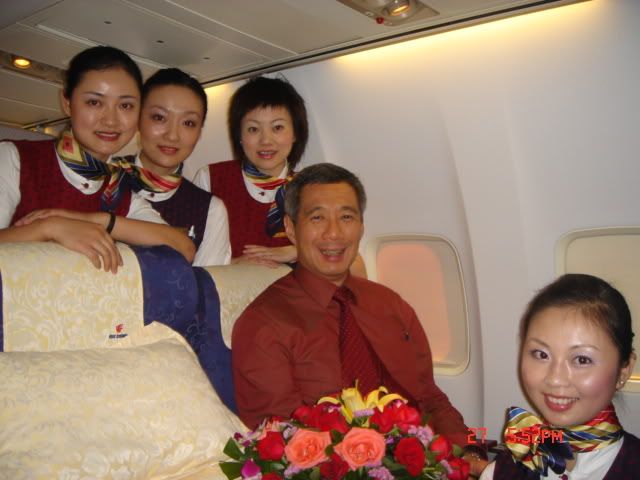- Joined
- Jul 24, 2008
- Messages
- 33,627
- Points
- 0
May 10, 2010
TV debates: Style and substance not mutually exclusive
<!-- by line --><!-- end by line -->
<!-- end left side bar --><!-- story content : start -->
I UNDERSTAND the concerns about televised election debates in Singapore raised by Mr Dennis Tan in his letter, 'Election debates on TV all style and no substance, so not for us' last Monday, but strongly disagree with his arguments.
Style and substance are not mutually exclusive notions - in the rapidly evolving global political landscape, the style factor has proven to be extremely important, as illustrated by former British premier Tony Blair and United States President Barack Obama. Charisma and poise have proven to be extremely beneficial for national policymakers in the greater international community.
Style goes beyond mere rhetorical abilities; it is about how politicians are able to convince the populace on policy matters and pertinent socio-economic programmes. Election debates provide a plausible platform for honest discourse on individual party ideologies and manifestoes. And while the administration can point to parliamentary sessions as a form of political exchange, they definitely lack the intensity and continual flow of ideas. Beyond the prepared scripts, these debates would require quick-thinking to go on the offensive and defensive.
The televised debates in Britain have drawn millions of viewers, and they have indirectly got young voters interested in politics. There is a general recognition that politics per se goes beyond mere legislature and policy formation; it encompasses the day-to-day aspects of the man on the ground. The intense debates have spurred many to read up more and learn more about the various potential implementations. Debates in Singapore would certainly yield the same benefits in generating heightened political consciousness, inadvertently granting Singaporeans an enhanced sense of ownership over matters.
Furthermore, the British debates have allowed Mr Nick Clegg, leader of the previously little-known Liberal Democrats, to take centre stage. Should the same be done in Singapore, opposition political leaders would have the opportunity to expound on their plans and express perspectives on various aspects of Singapore. Make or break, it boils down to the eventual performances put up by the participating politicians.
No one is contending that the substance of politicians should be negated. While Mr Clegg has amazed his countrymen with his outstanding performances, it remains imperative for him to prove that his initiatives are substantial and workable. The same rule of competency would apply anywhere in the world. In essence, Singapore's organisation of election debates would bring about only positive benefits for the parties, politicians and, most importantly, the people.
Kwan Jin Yao

TV debates: Style and substance not mutually exclusive
<!-- by line --><!-- end by line -->
<!-- end left side bar --><!-- story content : start -->
I UNDERSTAND the concerns about televised election debates in Singapore raised by Mr Dennis Tan in his letter, 'Election debates on TV all style and no substance, so not for us' last Monday, but strongly disagree with his arguments.
Style and substance are not mutually exclusive notions - in the rapidly evolving global political landscape, the style factor has proven to be extremely important, as illustrated by former British premier Tony Blair and United States President Barack Obama. Charisma and poise have proven to be extremely beneficial for national policymakers in the greater international community.
Style goes beyond mere rhetorical abilities; it is about how politicians are able to convince the populace on policy matters and pertinent socio-economic programmes. Election debates provide a plausible platform for honest discourse on individual party ideologies and manifestoes. And while the administration can point to parliamentary sessions as a form of political exchange, they definitely lack the intensity and continual flow of ideas. Beyond the prepared scripts, these debates would require quick-thinking to go on the offensive and defensive.
The televised debates in Britain have drawn millions of viewers, and they have indirectly got young voters interested in politics. There is a general recognition that politics per se goes beyond mere legislature and policy formation; it encompasses the day-to-day aspects of the man on the ground. The intense debates have spurred many to read up more and learn more about the various potential implementations. Debates in Singapore would certainly yield the same benefits in generating heightened political consciousness, inadvertently granting Singaporeans an enhanced sense of ownership over matters.
Furthermore, the British debates have allowed Mr Nick Clegg, leader of the previously little-known Liberal Democrats, to take centre stage. Should the same be done in Singapore, opposition political leaders would have the opportunity to expound on their plans and express perspectives on various aspects of Singapore. Make or break, it boils down to the eventual performances put up by the participating politicians.
No one is contending that the substance of politicians should be negated. While Mr Clegg has amazed his countrymen with his outstanding performances, it remains imperative for him to prove that his initiatives are substantial and workable. The same rule of competency would apply anywhere in the world. In essence, Singapore's organisation of election debates would bring about only positive benefits for the parties, politicians and, most importantly, the people.
Kwan Jin Yao


